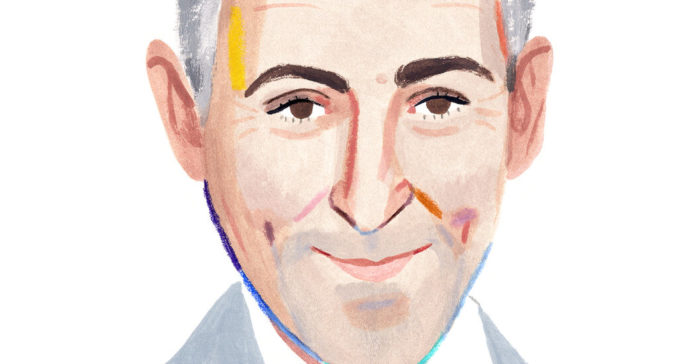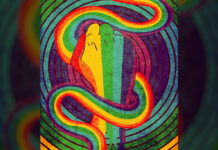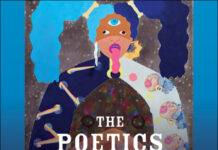
What’s the last great book you read?
“Shuggie Bain,” by Douglas Stuart. I can’t think of anything more immersive and all-encompassing. It was beautiful. Heartbreaking and awful and all the worst of humanity right next to the most touching and tender moments and then the biggest belly laughs. It made me miss home actually. Not because Shuggie’s life is anything like my upbringing, but more because of the tone and the fact that my country produces people like Douglas who can capture its spirit and essence and laugh at itself as well as bare its soul. It made me very proud to be Scottish.
Describe your ideal reading experience (when, where, what, how).
At my house in the Catskills I have had a tree house built. In it are all the books I want to read but haven’t got round to yet. There is a hanging chair and also a loft bed so I can lounge or lie down and read in utter peace. I’m surrounded by trees and there is a beautiful smell from the wood timbers. And like anything so lovely and comforting, even the thought of it makes me happy, sometimes as much as actually being able to sit in it and gorge on a book.
It’s also a pretty nifty venue for writing.
What’s your favorite book no one else has heard of?
“After Leaving Mr. Mackenzie,” by Jean Rhys. People know her for “Wide Sargasso Sea” (written as a sort of prequel to “Jane Eyre”) but I think this one is so brilliant. It feels very autobiographical, about an Englishwoman living in Paris in the ’20s who has been financially supported by a man (Mr. Mackenzie) and suddenly at the start of the story the checks stop coming. She is getting older, drinks a bit too much and is now desperate. Like “Shuggie Bain” it feels like you are experiencing this person’s life, not just observing them.
I read a biography of Jean Rhys and the saddest thing was that she had a resurgence in the ’60s when not only was “Wide Sargasso Sea” published but some of her earlier work was seen for the first time. She was much feted, even winning the W. H. Smith Literary Award. But her comment on all this success was “It has come too late.”
What book, if any, most contributed to your artistic development as an actor?
I hate deconstructing acting. I hate talking about it. I hate mythologizing it. When people ask me about my acting process I always say, “I am not a cheese, I have no process.” But I think of two books — “The Catcher in the Rye,” by J. D. Salinger, and “The Trick Is to Keep Breathing,” by Janice Galloway — that are both written in the first person and both feel that you are inside someone’s head and so I think that idea of being completely lost, completely overwhelmed and immersed in a role was fueled very much by reading them. Both are also about someone going through a mental breakdown, so make of that what you will.
Of all the characters you’ve played, which role felt to you the richest — the most novelistic?
Recently I have played a couple of sleuths who had really amazing back stories and both of whom were actually also writers. The first was Simon Hoxley on “Prodigal Son,” a Europol agent and best-selling novelist who seemed to be from another era. He was so juicy to play and I was sad “Prodigal Son” was canceled as I looked forward to him returning and chewing more scenery. And in “Instinct,” the series I did on CBS for a couple of years, I played Dylan Reinhart, a consultant with the N.Y.P.D. with a seemingly endless list of accolades and former iterations: a C.I.A. spy, a child musical prodigy, a phonographic memory, a university professor, a motorbike rider and a happily married gay man. Both seemed to have endless possibilities. Dylan even saved Whoopi Goldberg’s life by shooting a glass of poisoned iced tea out of her hand. I mean, come on.
What character from literature would you most like to play?
Brodie in “The Prime of Miss Jean Brodie.” I would play her as a man, not in drag or anything. I just think that her story has become so sweetened, biscuit tinned as we would say in Scotland, neutered of its horror through the years of us becoming accustomed and inured to it. But she is a fascist and was extolling fascism to young girls! I also think a man losing his lover to one of his female pupils would induce the necessary shock that we have perhaps lost. It’s also just a really great part and once you’ve played everything in “Macbeth” (like I have) there are slim pickings in terms of great, complicated, messed-up Scots left to play!








